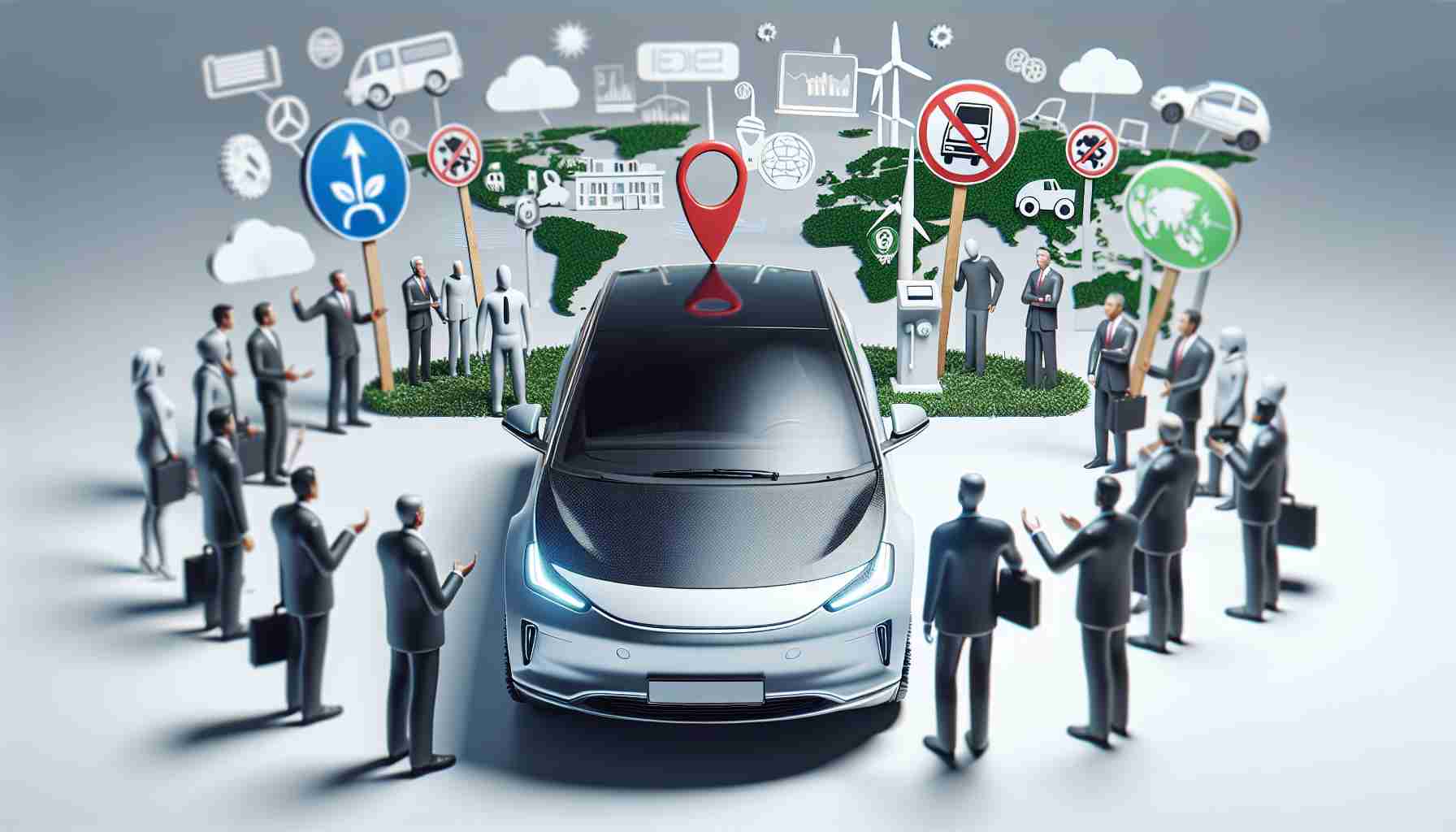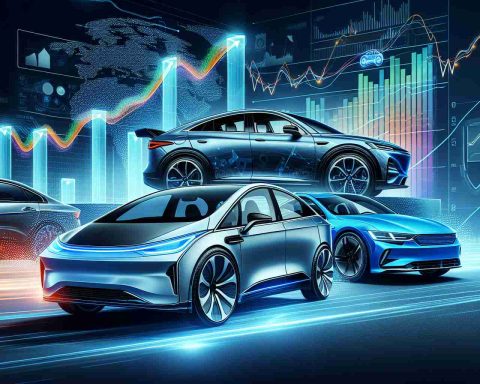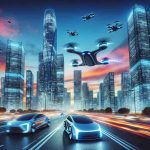- A growing controversy affects Tesla owners across the U.S., driven by a group demanding owners abandon their vehicles or face vandalism.
- Elon Musk, central to the issue, attracts criticism due to actions like mimicking offensive gestures and his controversial political affiliations.
- Globally, Musk’s image suffers as protests and vandalism appear at Tesla sites, including a significant incident in Berlin.
- Public dissatisfaction is fueled by Musk’s perceived support for far-right politics, complicating Tesla’s image as merely a car manufacturer.
- The situation highlights the complex interplay between technology, personal beliefs, and political ideologies.
- Tesla has evolved beyond a vehicle brand to symbolize broader social and political tensions.
A quiet storm brews across America, seeding unease in Tesla owners from the serene hills of Humboldt County to the bustling streets of Manhattan. Disgruntled voices escalate, and a group called “Students Against Nazi Extremism” demands Tesla owners relinquish their prized vehicles or risk the wrath of vandalism. Notes, some delivered with the ominous weight of bricks, shout “no Nazis in America,” stoking uncertainty about the future of these sleek machines.
Elon Musk, a titan of innovation and controversy, finds himself at the epicenter of this uproar. Recently granted dubious power by Donald Trump as a “special government employee” steering the hypothetical Department of Government Efficiency, Musk juggles glory and fury. His infamous sieg heil mimicry at a public event fuels flames of outrage, and his dismissive pun-laden retorts fail to douse the fire.
Renowned for his audacity, Musk faces backlash not just on home soil; across the Atlantic, a haunting image of him rendered alongside the word “heil” casts shadows on a Berlin Tesla factory wall. German scrutiny intensifies, echoing the discontent simmering globally. His open allegiance to Germany’s far-right AfD party rouses skepticism among moderates, creating ripples in political ponds far from Tesla’s California headquarters.
This modern-day drama unfolds with each protest, each symbol sprayed onto Cybertrucks. The narrative reveals a poignant key takeaway: the intersection of technology, politics, and personal belief weaves a complex tapestry, binding the fates of innovation and ideology. In this evolving saga, Tesla becomes more than a vehicle; it transforms into a symbol of contentious social discourse, challenging us to discern the leader from the machine.
Elon Musk’s Tesla: A Catalyst for Social and Political Tensions?
The Situation
A confluence of social unrest and political divisiveness seems to be enveloping Tesla, the innovative giant known for its cutting-edge electric vehicles and autonomous technology. Presently, Tesla owners across the United States find themselves at a crossroads—a symbol entangled in fierce debates and ideological battles, pushed into the spotlight by the polarizing presence of Elon Musk.
Understanding the Catalyst
The ordeal for Tesla owners springs from a protest group named “Students Against Nazi Extremism,” which has been rallying against Tesla with accusations linking the brand and its CEO to extremist ideologies. These actions have taken a tangible form: threatening notes and acts of vandalism directed at Tesla owners. What is the underlying cause of these visceral reactions?
The Musk Factor
Elon Musk, Tesla’s visionary CEO, is a polarizing figure known for walking the tightrope between brilliance and controversy. His recent appointments and alignment with political entities have drawn more than just an eyebrow raise. Allegations of trivializing Nazi symbolism, coupled with expressions of sympathies towards Germany’s controversial far-right AfD party, have made Musk a global focal point of scrutiny.
Key Questions:
1. How do Musk’s political affiliations impact Tesla as a brand?
– Musk’s perceived political leanings could polarize Tesla’s customer base, potentially alienating those who disagree with his stances while galvanizing others. It serves as a reminder of how corporate leadership and personal beliefs can entangle and influence brand perception.
2. How can Tesla owners navigate this social unrest?
– Owners should remain informed about developments and practice proactivity, whether through community advocacy, seeking clarity from Tesla, or engaging constructively on platforms discussing the issue.
Global Implications
As social media amplifies the dissent surrounding Tesla and Musk, these occurrences paint a larger picture about the complex relationship between technology and ideology. This incident underscores how the societal roles of tech companies are evolving, and stakeholders—including consumers and policymakers—are re-examining the values these companies represent.
Moreover, Elon Musk‘s influence extends beyond Tesla. His ventures in aerospace, social media, and artificial intelligence render him an influential figure in numerous realms, magnifying the consequences of his personal and professional decisions.
Future Considerations
This evolving saga shines a spotlight on the necessity for a balance between innovation and ethical responsibility. It prompts a broader discussion on how leaders in technology should wield their influence and navigate the intersection of politics and ideology.
What to Watch
– Consumer Responses: Monitoring how Tesla’s consumer base reacts could provide insights into shifting brand loyalties and market trends.
– Policy Implications: Increased scrutiny on tech leaders might spur legislative or regulatory responses aimed at holding influential figures accountable for personal conduct.
As Tesla’s narrative unfolds amid technological leaps and ideological disputes, stakeholders must ponder not just the fate of a brand or the practices of its leader but the intricate dance of innovation, leadership, and social values in an interconnected world.
For more insights and news about technology and society, you can visit Tesla.

















